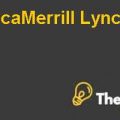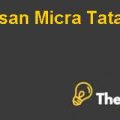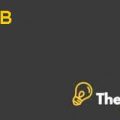
The Harilela Enterprises: An Indian Business in Hong Kong Case Solution
Introduction
The case summarizes importance of a strong family in a global business and its impact on internal performance control of operations. They are based in Hong Kong but have businesses all over the world.
During the initial stages of the business, Harilela (owner of the business) implemented a flat structure of management in order to increase the flexibility for every member. Although shareholders also participated in the business, but the problem was that the existing structure did not increase the interest of the participating shareholders.
Another issue inside its internal structure was the unequal distribution of shares among owners of the business, which can impose a threat of expelling shareholder’s benefit from the entity through the repurchase of existing shares by other dominating owners.
The company adopting a flat management structure instead of franchising one caused a threat to its control. Had they opted for a franchise system, it would have transferred them into a competitive business and increased their global branding.
This prevalent did not favor the company, but it was the preferred system for Hari. He decided to pass the future ownership of the business to someone outside his family. On the other hand, his brothers wanted to change the structure from management to franchise.
Conclusively, the business was in a position that favored Harilela rather one that expands to a different structure. Therefore, this factor caused serious conflicts between family members since his brothers wanted every sibling to start an individual competitive business at the same level of Harilela enterprises.
Problem Statement:
Despite having a successful business, Herilela brothers decided to part ways and that is the main problem in the case. Furthermore, company’s management also had to make a choice on whether the company should become a public enterprise and list itself on the stock exchange or otherwise? Moreover, the management also had to choose between current management system and a franchising system. The other major concern was how their business will pass on to the next generation of the family. Since the older generation had successfully built a business empire by focusing on traditional values. Harilelas’ were passionate about continued success of their businesses.
Analysis:
The Hotel business was risky when Holiday Inn Hotel was established, the construction progress was slow, and property prices crashed. In addition to this, tourism had also declined. Furthermore, the construction and other costs were very high, due to which the family had to sell number of properties in order to construct the hotel including Imperial Hotel. However, as the business improved, the family bought back Imperial Hotel.
Furthermore, Hari’s brother had several other stakes in various other businesses and had different interests. Hari’s brother had stakes in banks situated in Singapore and Los Angeles. Moreover, George (Hari’s brother) owned a company that focused on production of toys, watches, and other such items. Moreover, Bob (Naroomal’s fourth brother) was responsible for administration of overseas offices and ran his own travel agency. Other brothers were involved in import and export businesses and ran Indian cuisine restaurants in Hong Kong. The business also faced problems in obtaining funding, as it had no access to capital markets. This drove their focus on becoming a public entity and list their properties on stock exchange, but Hari wanted their business to remain private. Their lack of access to capital markets was also a reason for the slow construction of Holiday Inn. Another challenge was that the family members held unequal interest in the company due to which several disagreements arose......................
This is just a sample partial case solution. Please place the order on the website to order your own originally done case solution.











